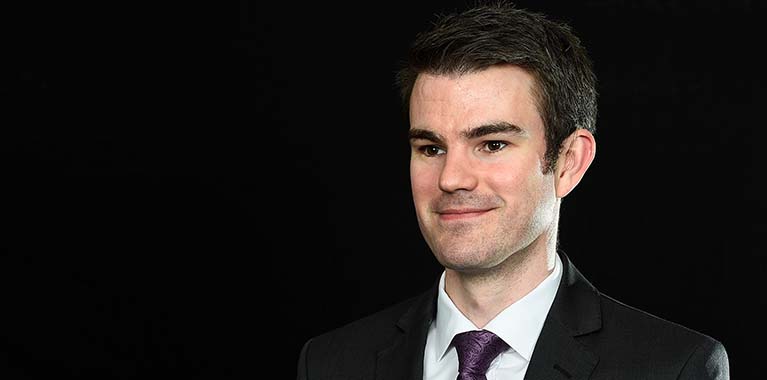Muller, cornered: the fraud and “Muller” exceptions to the without prejudice rule (Berkeley Square v Lancer)

The Court of Appeal confirmed that defendants could rely on without prejudice statements made in a mediation position paper in order to rebut fraud allegations: Berkeley Square Holdings v Lancer Property Asset Management Ltd [2021] EWCA Civ 551.
The judgment is the first reported appellate decision to consider the “fraud” exception to without prejudice protection, and provides helpful guidance on the so-called “Muller” exception.
Exceptions to the rule on without prejudice privilege
Without prejudice (“WP”) communications made by parties to a dispute in a genuine attempt to settle it, are normally protected from disclosure. The purpose behind the rule is to encourage parties to speak freely in negotiations, without worrying that admissions or concessions can later be used against them in litigation. However, there are circumstances in which this rule will be overridden. The leading case of Unilever plc v Procter & Gamble Co [1999] EWCA Civ 3027 identified six commonly understood exceptions to the rule. Two of these exceptions were relied on by the defendants in Berkeley Square:
- “the fraud exception”, which, as formulated in Unilever, permits WP negotiations to be admitted to set aside an agreement on the basis of misrepresentation, fraud or undue influence; and
- “the Muller exception”, arising from Muller v Linsley [1994] EWCA Civ 39, where WP communications were produced to show a party acted reasonably in mitigating its loss by reaching a settlement with a third party. Hoffmann LJ determined that the issue was unconnected to the truth of anything stated in the negotiations or "admissions", so fell outside the public policy justifying the WP rule. The other members of the court agreed but would also have based their decision on the grounds of waiver. Both bases of the Muller exception have been subject to doubt in subsequent case law, but the decision remains good law.
The without prejudice material in Berkeley Square
Berkeley Square and others (“Berkeley”) brought a fraud claim against the manager of their £5 billion London property portfolio (“Lancer”) and its directors and holding company (the “Defendants”). Berkeley alleged that Lancer and the Defendants were complicit in a fraudulent agreement with Berkeley’s representative to make increased payments to Lancer without Berkeley’s knowledge.
In 2012, a dispute between Berkeley and Lancer regarding the latter’s entitlement to fees had been settled by Berkeley and Lancer following a mediation.
Following Berkeley’s alleged discovery of the fraudulent agreement, in 2018 it commenced these proceedings, arguing that its representative had had no authority to enter into the settlement. However, the Defendants argued Berkeley had known and approved of the increased payments since at least 2012 (that is, more than six years before it issued its claim), relying upon passages referring to the payments in Lancer’s earlier mediation position paper.
Berkeley argued that the content of the position paper was inadmissible on the basis that it was part of a WP mediation on confidential terms and applied to strike out the relevant passages of the defence. At first instance, Roth J refused the application, determining that mediation statements fell within both the fraud and Muller exceptions. Berkeley appealed the decision.
The Court of Appeal dismissed the appeal, agreeing with the High Court’s finding that the fraud exception applied. David Richards LJ gave the leading judgment, with which Henderson and Popplewell LJ agreed.
The Court of Appeal’s consideration of the fraud exception
Berkeley argued that the fraud exception formulated in Unilever only applied where a party sought to set aside an agreement. In this case, the Defendants were seeking to rely on the fraud exception to uphold the validity of an agreement. Richards LJ, however, rejected this argument, finding that there was no principled basis for admitting evidence in the former case but not the latter.
The Court of Appeal held that the reference to "misrepresentation, fraud or undue influence" in Unilever was not intended to be exhaustive. The fraud exception potentially also applies where an apparent contract is concluded without the necessary consent of the parties to it including, for example, where a party asserts that its agent lacked the authority to make the contract (as was Berkeley's case on the facts).
Richards LJ emphasised that the outcome of successful WP communications is a contract that compromises the dispute. Such contracts, he held, are no different to other types of agreement. In the context of the “very limited” fraud exception, there is no principled basis for excluding WP negotiations to determine their terms, meaning and validity. To hold otherwise would be to elevate settlement agreements into a separate class of contract.
The Muller exception
Richards LJ described the Muller exception as "troublesome" but confirmed that the decision, if not the underlying reasoning, remains correct. On the present facts, however, Richards LJ held that reliance on the Muller exception was "misplaced".
At first instance, Roth J relied on the decision in Briggs v Clay [2019] EWHC 102(Ch) in finding that the Muller exception applied. He held that the Muller exception (as developed in Briggs) permitted disclosure of WP communications where such disclosure was necessary to make an issue raised by the party resisting disclosure "fairly justiciable". Richards LJ, however, considered this (and the underlying Briggs judgment) to be a new exception, rather than an application or even an extension of Muller. While not opining on the legitimacy of such a new exception, he voiced concerns about whether the development of such an extension of the rule would involve an “unacceptable interference with the public policy of encouraging compromises”.
Richards LJ preferred to analyse Muller as establishing an exception encompassing its own facts. In both Muller and Briggs, there were third parties in the negotiation who were not party to the litigation (referred to as a “three-party” case). Waiver was not therefore possible without the consent of those third parties. Although the Court of Appeal did not expressly address this issue, the real question in Muller, he held, was the extent to which the absence of a waiver by the third party can in appropriate cases by overridden. By contrast, in this case, the parties to the litigation and the WP negotiations were the same (a “two-party” case). As such, if one party elected to waive privilege, it was open to the other party to either object or affirm the waiver. The Muller exception (as interpreted here), did not therefore apply. The relevant question was whether Berkeley had waived its right to privilege in the mediation by pleading a lack of knowledge vitiating its consent. This question was not, however, raised at first instance or on appeal as the issue of waiver was not before the court, the Defendants having made clear they did not rely on it.
Analysis
The Court of Appeal's formulation of the fraud exception is wider than previously accepted. Litigants may be able to rely on the exception both offensively and defensively in setting aside or upholding settlement agreements. In particular, parties need to be aware that if a settlement reached at mediation is challenged, confidential and without prejudice communications may be admitted into evidence to rebut allegations that the settlement was reached without all the necessary parties’ consent.
In addition, whilst the Court of Appeal accepted that courts should exercise caution in extending the categories of WP exception, Richards LJ avoided being over-prescriptive as to the circumstances of any future extension. Given that the "new" exception from Briggs and Berkeley at first instance was not expressly overruled, it will be interesting to see whether the exception is pursued in other cases (potentially on narrower terms) and how the courts respond.


